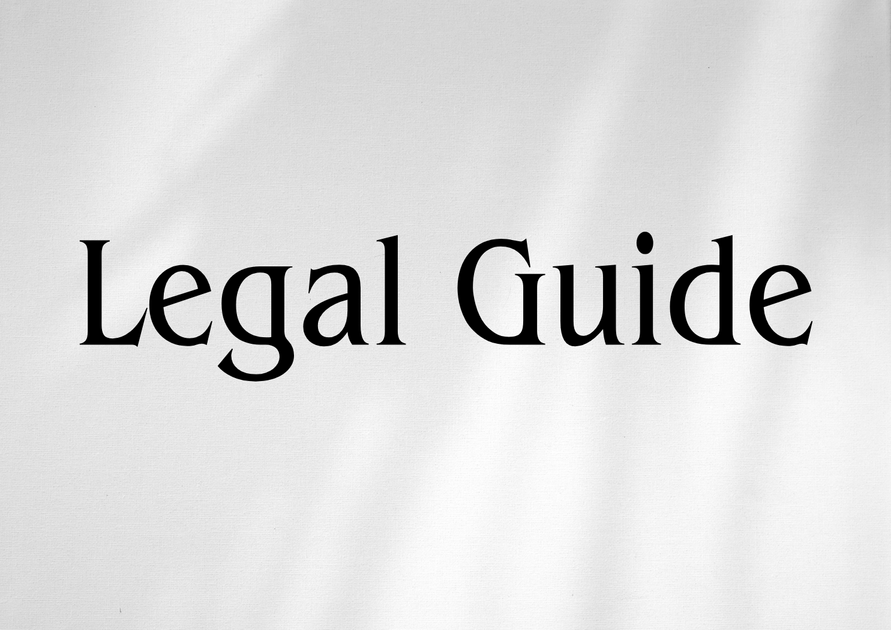Introduction: Navigating Language and Translation in UAE Arbitration
In today’s rapidly expanding UAE business landscape, arbitration has become a preferred method for resolving commercial disputes due to its efficiency, flexibility, and confidentiality. As the UAE continues to position itself as a global commercial hub, particularly in light of recent legal reforms culminating in the updated UAE Arbitration Law (Federal Law No. 6 of 2018 and subsequent amendments up to 2025), the issue of language and translation in arbitral proceedings has gained significant prominence. Ensuring that arbitration is conducted in a language all parties understand is not only a matter of procedural fairness but also a legal compliance requirement under UAE law.
For multinational corporations, SMEs, and local businesses alike, a misstep in handling language requirements can result in procedural delays, unenforceable awards, or even sanctions. This article provides a consultancy-grade analysis of the legal framework governing language and translation in UAE arbitration, referencing the latest legislative updates, and offers practical guidance for legal practitioners, business leaders, and HR managers operating in the UAE’s dynamic dispute resolution environment.
By delving into relevant laws, analyzing real-world applications, and offering best-practice recommendations, this article will equip readers with actionable insights for navigating this crucial aspect of UAE arbitration. Whether you are drafting an arbitration clause, preparing for proceedings, or seeking to enforce an arbitral award, understanding the legal nuances of language and translation is indispensable for safeguarding your interests and ensuring compliance in 2025 and beyond.
Table of Contents
- Legal Framework Governing Language in UAE Arbitration
- Key Language Provisions Under Federal Law No. 6 of 2018 and Updates
- Translation Requirements and Practical Implications
- Appointment and Qualification of Translators
- Comparative Table: Language and Translation Rules – Old vs. New Law
- Case Studies: Real-World Applications and Challenges
- Risks of Non-Compliance and Legal Consequences
- Practical Compliance Strategies and Recommendations
- Looking Ahead: Trends, Challenges, and Best Practices
- Conclusion: Key Takeaways and Strategic Outlook
Legal Framework Governing Language in UAE Arbitration
Overview of Applicable Laws and Regulations
The legal framework for arbitration in the UAE is primarily outlined in Federal Law No. 6 of 2018 (UAE Arbitration Law), which harmonizes UAE arbitration with international standards, notably the UNCITRAL Model Law. Key authorities overseeing language requirements include the UAE Ministry of Justice, the Federal Legal Gazette, and procedural guidelines laid out by leading arbitral institutions (such as DIAC and ADCCAC).
The updated law grants significant autonomy to parties in selecting the arbitration language but embeds crucial restrictions and translation mandates to uphold fairness and enforceability. It reflects the UAE’s multilingual business setting and the importance of Arabic as the official language of the country and its courts.
Why Language and Translation Matter in Arbitration
Language is not merely a logistical detail—it defines the extent to which parties can effectively present their case and participate in the arbitral process. Mismanagement can result in procedural invalidity, delayed proceedings, and unenforceable awards, all of which carry substantial business and legal risk.
Key Language Provisions Under Federal Law No. 6 of 2018 and Updates
Party Autonomy vs. Statutory Safeguards
Article 29 of the UAE Arbitration Law firmly establishes party autonomy. It provides that arbitration proceedings may be conducted in any language agreed by the parties, whether in the arbitration agreement or later, subject to certain exceptions. In the absence of consensus, the language(s) shall be determined by the arbitral tribunal, taking into account relevant circumstances.
Statutory Safeguards and Court Oversight
Certain procedural safeguards override party autonomy to protect due process. Notably:
- All documentation submitted to the UAE courts in support of the arbitration (e.g., applications for interim relief, challenges, or enforcement of awards) must be in Arabic or accompanied by a certified Arabic translation (per UAE Civil Procedures Law and Ministerial Resolutions No. 7/2018 and 57/2018).
- Where proceedings affect third parties, or a party requests, the tribunal may order translations to ensure understanding.
- Arbitral awards for domestic enforcement must be rendered or translated into Arabic for validity in UAE court recognition and enforcement proceedings.
Legislative Amendments and Institutional Rules (2021–2025)
Recent updates, in particular those captured in the 2023 Cabinet Resolution No. 23/2023 and changes implemented by arbitral institutions (notably the revised DIAC Rules 2022), further clarify the requirement for transparency and clarity where multilingual documents are involved. As more international parties engage in UAE arbitration, the law has been updated to reinforce both flexibility and translation integrity.
Translation Requirements and Practical Implications
Official Requirements for Translations
The necessity for translation arises at three critical stages:
- Pre-Arbitration Stage: Any arbitration clause or agreement originally drafted in a language other than Arabic may require translation in the event of judicial scrutiny or enforcement by UAE courts.
- During Arbitral Proceedings: Documentation, procedural orders, evidence, and submissions may need translation if the proceedings are conducted in a language not universally understood by all parties or the tribunal.
- Post-Award and Enforcement Stage: Any arbitral award submitted to UAE courts for recognition or enforcement must be accompanied by a certified Arabic translation, per Article 41(4) of the UAE Arbitration Law.
Who Bears the Translation Costs?
Generally, parties mutually agree or the tribunal allocates responsibility based on procedural fairness considerations. Where not specified, each party bears costs for translation of its evidence and submissions. Translation costs can become significant, especially in document-intensive disputes involving technical sectors.
Institutional Practices and Market Norms
Institutions such as the Dubai International Arbitration Centre (DIAC) and Abu Dhabi Commercial Conciliation and Arbitration Centre (ADCCAC) specify in their rules how translations should be handled, often requiring submissions and awards to be rendered in the agreed language or, where necessary, translated by qualified professionals.
Appointment and Qualification of Translators
Legal Requirements for Translators in Arbitration
The appointment of translators—especially for documents intended for judicial or official purposes—is strictly regulated. According to the UAE Ministry of Justice and Ministerial Resolution No. 258/2019, only translators registered and licensed by the UAE Ministry of Justice are authorized to provide certified translations for use in court or government proceedings.
The arbitral tribunal may, upon agreement or request, appoint a translator or facilitator to ensure procedural fairness, particularly where there are parties of different nationalities or linguistic backgrounds.
Certification and Quality Assurance
Certified translations must include an affidavit of accuracy and the physical or electronic seal of the UAE-licensed translator. Non-certified or machine translations will typically be rejected by UAE courts, jeopardizing enforceability and compliance.
Comparative Table: Language and Translation Rules – Old vs. New Law
To facilitate clear understanding, the following table outlines critical differences between the pre-2018 procedural regime and the current updated framework governing language and translation in UAE arbitration:
| Aspect | Pre-2018 Regime | UAE Arbitration Law 2018 (as amended to 2025) |
|---|---|---|
| Party Autonomy on Language Choice | Limited, with default to Arabic and strong court oversight | Broad autonomy allowed, subject to fairness and public order |
| Language of Proceedings | Arabic by default unless otherwise agreed | Language designated in agreement or by tribunal |
| Translation of Documents | Frequent, often ad hoc and judicially required | Mandated for enforcement/recognition and as ordered by tribunal |
| Certified Translators | Less regulated, variable standards | Strict requirement for Ministry-certified translators |
| Arbitral Awards for Courts | Award often rejected if in non-Arabic without translation | Explicit requirement for certified Arabic translations for court |
| Institutional Rules | Less harmonized, siloed practices | Alignment with Federal Law and international norms |
Case Studies: Real-World Applications and Challenges
Case Study 1: Multinational JV Construction Dispute
Facts: A joint venture between a French and Emirati company entered into a USD 200 million construction contract. The arbitration clause specified English as the proceedings’ language. Dispute arose, and arbitration commenced in English under DIAC Rules. Upon seeking enforcement of the final award, the UAE court required submission of a certified Arabic translation. Delays occurred due to improper initial translation that was not by a Ministry-licensed translator.
Analysis: Clear mapping of translation steps at the outset would have avoided procedural delay. Parties should pre-identify certified translators and allocate responsibility in the arbitration clause or terms of reference.
Case Study 2: SME Supplier Dispute
Facts: An SME supplier’s contract with a local client had an arbitration clause but was silent on language. Arbitration was commenced in Arabic. The foreign supplier struggled to understand proceedings, leading to challenges in presenting evidence. Tribunal ruled that, under the updated law, the foreign party had a right to request translation at the expense of the requesting party. Supplier’s lack of planning resulted in increased costs and unfavorable timelines.
Insight: Where international parties are involved, explicit agreement on the arbitration language in the contract and clarity on translation responsibilities is crucial to procedural fairness, especially for SMEs with limited resources.
Case Study 3: Enforcing Foreign Awards in UAE
Facts: A German manufacturer held an ICC arbitral award in German. For enforcement in Dubai, the manufacturer submitted the original award and German evidence. The court rejected the petition, citing missing certified Arabic translation, as per Article 41(4) of the law and procedural regulations. This required a new, court-compliant translation—causing further delay and expense.
Practical Note: For cross-border awards, early engagement with certified Arabic translators is essential for enforcement in the UAE.
Risks of Non-Compliance and Legal Consequences
Procedural Risks
- Delayed Proceedings: Non-compliance with translation requirements can result in delays at almost every arbitral stage, from submissions to award enforcement.
- Ineffective Enforcement: The UAE courts strictly require certified Arabic translations for enforcement actions; failure to provide compliant translations renders awards unenforceable.
- Evidentiary Exclusion: Poorly translated documents may be excluded or afforded little evidential weight, undermining parties’ claims or defenses.
Legal and Financial Risks
- Sanctions and Cost Penalties: Tribunals and courts may impose adverse costs orders if non-compliance with procedural language requirements extends proceedings or creates unnecessary complexity.
- Jurisdictional Objections: Opposing parties might challenge the tribunal’s jurisdiction or validity of the proceedings based on procedural defects related to language/translation.
Practical Compliance Strategies and Recommendations
Drafting Robust Arbitration Clauses
To minimize ambiguity and risk, ensure that the arbitration clause:
- Explicitly states the language of arbitration (e.g., “The language of arbitration shall be English”).
- Clarifies responsibilities and cost allocation for translations.
- Names the institutional rules to be adopted.
- States that any award to be enforced in the UAE will be accompanied by a certified Arabic translation.
Pre-Proceedings Action Plan
- Review all contract documentation for language consistency and translation clauses.
- Identify official translators certified by the Ministry of Justice early on.
- Pre-translate key documentation likely to be submitted to courts.
During Proceedings
- Request clarification from the tribunal regarding translation requirements as early as possible.
- Ensure party representatives and witnesses have access to translated materials if required.
Post-Award and Enforcement
- Engage Ministry-certified translators to produce accurate, court-compliant Arabic translations of the award and supporting documents.
- Verify all Arabic translations include certification as per Ministerial Guidelines.
- Submit translations alongside original awards for enforcement to avoid delays.
Compliance Checklist Table
| Step | Responsible | Compliance Tip |
|---|---|---|
| Agree on Arbitration Language | Contract Drafters/Legal Teams | Include explicit language provision in contracts |
| Identify Certified Translators | Legal/Procurement Teams | Check Ministry of Justice online registry |
| Translate Key Documents | Instructed Translators | Use certified translators only |
| Submit Translations to Courts | Legal Counsel | Ensure certification seals and affidavits are included |
| Retain Filing Proofs | Legal Teams | Keep copies and receipts for all translation submissions |
Looking Ahead: Trends, Challenges, and Best Practices
Emerging Technology and Remote Proceedings
The UAE is increasingly adopting technological advancements in arbitration, including e-filing, virtual hearings, and AI-assisted document review. While these innovations streamline proceedings, they also introduce new translation challenges, especially for electronic records and real-time interpretation during virtual hearings. Legal teams must ensure that technological solutions comply with existing requirements for certified translations and confidentiality.
Increasing Globalization and Multilingual Disputes
With a greater influx of international parties, disputes involving multiple languages are likely to rise. Future institutional rules are expected to offer more structured frameworks for simultaneous translation, multilingual awards, and expedited translation procedures without sacrificing accuracy or enforcement integrity.
Arbitral Tribunal Flexibility and Court Scrutiny
Arbitrators are afforded greater procedural flexibility under the revamped law, but court scrutiny remains stringent regarding enforcement. Alignment between tribunal practice and UAE court requirements is therefore a must. Ongoing training and dialogue between arbitrators, legal counsel, and translators will be key to maintaining consistency, efficiency, and compliance.
Conclusion: Key Takeaways and Strategic Outlook
The legal requirements for language and translation in UAE arbitration reflect a sophisticated balance between party autonomy, procedural fairness, and enforceability. Recent statutory reforms give businesses greater flexibility while imposing tighter standards for translation—especially for documentation reaching the UAE judiciary. Non-compliance carries substantial risks, including delay, unenforceability, and cost.
To stay ahead, organizations should:
- Draft clear, robust arbitration clauses covering language and translation.
- Engage certified translators early and maintain rigorous quality assurance.
- Work closely with legal experts to adapt to evolving laws and technologies.
As UAE arbitration law continues to harmonize with international best practices, professional diligence in language and translation will be a critical success factor for legal compliance and dispute resolution. Staying informed of UAE law 2025 updates and partnering with expert advisors ensures your business remains compliant, proactive, and well-positioned in the UAE’s changing legal landscape.




